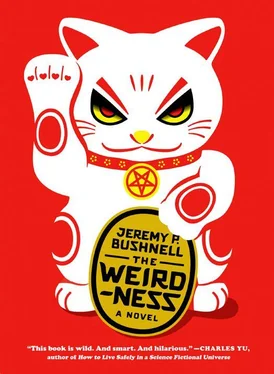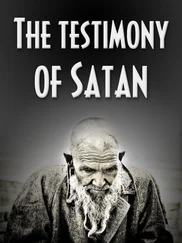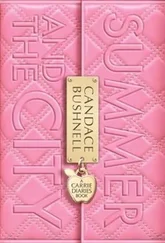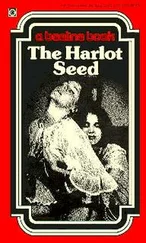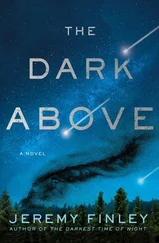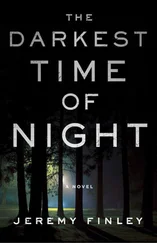“I’m so tired,” Ollard says. He presses the heels of his hands into his face, as though he’s stuffing thoughts back into his head. “I’m tired,” he says again.
“We’re all tired,” Billy says. “Take me to the Neko.”
Ollard draws a long, shuddering breath, and then looks back at Billy, his face having regained some of its composure. “You want to see the Neko?” he says.
“Well, yeah,” Billy says. “I mean. Eventually. We can keep talking for a bit if you want.”
“It doesn’t matter,” Ollard says, rising. “We can talk on the way.”
“All right then. Let’s go.” Billy claps his hands on his thighs and gets out of the chair, leaving the creepy Americano on the little round table, untouched. They walk behind the counter, weaving between the three workers, who are involved in polishing nonexistent spots off the machines at the bar. Ollard hooks around into the supply room, and just past the big industrial refrigerator and the sinks, right in the spot where labor practices posters should be hanging in mandatory display, the Starbucks abruptly opens into a long corridor, grim and dingy, its walls a sort of dulled avocado, gone rippled from layers upon layers of paint. It has a dusty whiff about it, like a rarely visited back wing of an underfunded natural history museum, like a stuffed bison slowly rotting in an alcove.
“I’ve been alive for a long time,” Ollard says, as the two of them enter the corridor. His voice wavers.
“I’d heard that,” Billy says. They’re passing doors on either side; Billy wonders what he’d find if he opened them. “Lucifer said you’d been alive for like eighty years or something?”
“Oh, longer than that,” Ollard says. “Before that I was just off the radar, I guess. I was … very subtle.”
“It’s a good trick,” Billy says, encouragingly. He looks over his shoulder, back down the hallway, making sure that he can still see the Starbucks supply room. If he can make it back there he can make it back to the door that leads out to the street, and for some reason he believes that if he makes it back out to the street, he’ll be safe.
“A good trick,” Ollard says. “Is it?”
“Sure,” Billy says. “Staying young? You could make a million bucks if you figured out a way to teach people how to do it.”
“I’ll tell you how to do it,” Ollard says.
“Okay,” Billy says. Against his better judgment his interest is piqued.
“You learn how to take,” Ollard says. “That’s all there is to it, really.”
“Uh,” Billy says.
“That was what I wanted,” Ollard says, “as soon as I was old enough to really be aware that I would die . As soon as I became aware that I would die I also became aware that there were people younger than me . They were — further away from death than I was. And I decided that I wanted what they had. Their youth: I wanted to take it. And I had to figure it out. How to take it. You can do it subtly. Small doses. I take a year from someone; I gain a year. It’s only a year. Sometimes you can take a few at once. Young people hardly even notice. Most of them want to grow up faster anyway. You have to be careful, though. You take too many years at once and you create — aberrations.”
Billy doesn’t want to hear about aberrant children. He wants to get the Neko and get the hell out of here. They reach the end of the corridor, which terminates in a heavy metal door. Through a tiny window, crisscrossed with safety wire, Billy can see a stairwell.
“Regardless,” Ollard says. He yanks on the door handle and the door squeals open. “It was, for some years, a satisfying puzzle to work on, the puzzle of getting more life. And as you can see, I’ve gotten very good at it.”
“Too bad about the aberrations, though,” Billy says, uneasily, as they enter the stairwell. Raw brick here, the steps metal grates.
“They’re not the problem,” Ollard says, as he begins to descend. “I mean, yes, they are a problem. An unpleasantness for others to deal with. But they’re not my problem.”
“Okay, I’ll bite. What is your problem?”
“My problem, Billy, is with the world. There’s enough in it to be interesting for a lifetime. Maybe a hundred years’ worth of interest in total. Puzzles to solve. Satisfying activities. But after that, something happens. You get bored. You detect the larger patterns, the cycles. The repetition. Everything repeats. You have to eat every day. Three times a day. Can you imagine that? For two hundred years? It becomes oppressive. You begin to recognize that every variation — everything that constitutes human cuisine in total — is just an attempt to use novelty to disguise the repulsive oppression inherent to it.”
Billy thinks of the lamb crepes, of wanting to save the world because they were so damn tasty. He opens his mouth to object, but Ollard just keeps rolling on: “You can amass more knowledge— there’s always more knowledge — but there’s no longer an end to put it toward. Most people bother to amass knowledge for very basic reasons, you know. To convert it into power . To flatter one’s own vanity . To impress a potential sexual partner .” They’ve reached the bottom of the stairwell, and Ollard hauls open another metal door. Billy follows him down a narrow aisle between banks of grey utility shelving heaped with disintegrating wood-grain-print file boxes, and begins to formally worry about the distance between him and the street now.
“But if you live long enough,” Ollard says, “you see that even these ends are worthless.”
“I don’t know,” Billy says. “Sex is pretty good.” Except when it’s not , he thinks, and with this thought comes a jolt of renewed regret at having failed to set up the Nice Evening with Denver; it would be good to have a really memorable recent sexual experience to fall back on in this conversation. It would be one more cause for hope, which seems to be in increasingly short supply as they go deeper and deeper into the tower.
“Sex?” Ollard says. “Are you kidding me? A jumble of thrashing flesh. And an orgasm? What is that? Cheap stimulation of your own mind’s pleasure center. My final orgasm was in 1969.”
Well , Billy thinks, that explains something .
Ollard stops, turns to Billy, beginning to tremble as the strains of outrage and disbelief in his voice redouble. “I even tried being good for a while,” he says. “I thought, well, there’s something I haven’t done. Maybe being good has its own interesting aspects. Intrinsic rewards? I’d heard of them. So. Ten years I spent. I cloaked a couple of acres of mountain valley in China, found a couple of pandas the world didn’t already know about, started up my own little private conservancy. I thought, now here’s a thing that will — just a thing that will make me happy , in this godforsaken world. I even got them to put out a couple of cubs. But you know what? It was boring . Turns out pandas are incredibly boring. I would go there — I had some stupid idea that it would serve as a retreat, a place where I could go to quietly reflect or something equally pointless — and so I would go there and watch these idiot Ailuropods shamble about, and it just got to the point where I felt contempt for them, nothing but the deepest contempt . And so I killed them.”
Billy’s been doing his best, through this monologue, to keep his facial expression neutral, but at this he can feel a look of dismay crack through.
“Oh yes,” Ollard says. “I slit their throats with a ceremonial blade. And then I set the valley ablaze and watched it die. And that? Watching my verdant mountaintop be scoured clean by fire? That , Billy Ridgeway, felt good. And that’s when I knew that there was one last satisfying puzzle for me. The puzzle of how to make that experience be the only experience. For me, for everyone. The puzzle of how to burn the world.”
Читать дальше
